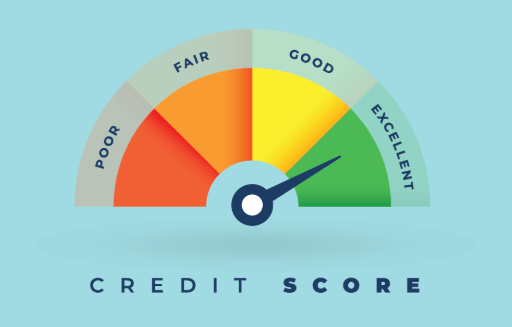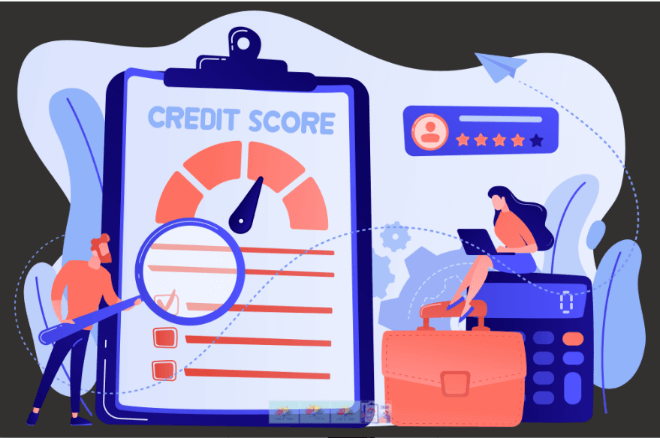Accretive Cleantech Finance Private Limited is now Ecofy Finance Private Limited
UNDERSTANDING 'CIBIL WRITTEN OFF' STATUS: IMPLICATIONS FOR YOUR LOAN APPLICATIONS
- Publish on Feb 01, 2025
- Read Time 5 min
Your CIBIL report serves as a snapshot of your credit history and plays a crucial role in determining your creditworthiness. Among the various terms that can appear on your CIBIL report, "Written Off" is one of the most concerning. This status can have significant implications for your financial health, especially when applying for loans or credit cards. In this article, we’ll unravel what "Written Off" means, its impact on your credit score, and how you can work to remove this status from your CIBIL report.

What Does 'CIBIL Written Off' Status Mean?
When you see "Written Off" on your CIBIL report, it typically means that a
lender has categorized your debt as uncollectible. In simpler terms, the
lender has given up on recovering the amount due because you failed to make
payments over an extended period.
However, "Written Off" doesn’t mean the debt is forgiven. The lender may still pursue repayment through legal channels or debt recovery agencies. The status is merely an accounting term indicating the lender has moved the unpaid amount off their books.
This status can arise due to:
- Defaulting on EMI payments.
- Failing to settle credit card bills.
- Ignoring repayment reminders from lenders.
Impact of 'Written Off' Status on Your Credit Score
The "Written Off" status has a direct and negative impact on your credit score. It signals to potential lenders that you have struggled with repaying past obligations, making you a high-risk borrower.
Here’s how it can affect your financial profile:
- Drastic Drop in Credit Score: A "Written Off" status can cause your credit score to plummet, often by a significant margin. Since your CIBIL score reflects your repayment behavior, this status creates a red flag.
- Reduced Loan Approval Chances: Lenders rely heavily on credit reports to assess your reliability. A "Written Off" status may result in outright rejection of your loan applications.
- Higher Interest Rates: Even if a lender approves your application, you might face higher interest rates or stricter terms.
- Difficulty in Accessing Credit Cards: Banks are likely to deny credit card applications when they see a "Written Off" status on your report.

Steps to Remove 'Written Off' Status from Your CIBIL Report
1. Understand the Details of the Default
Review your
CIBIL report carefully to determine why the account was marked as "Written
Off." Ensure that all entries are accurate and there are no discrepancies.
- Negotiate with the Lender: Reach out to the lender who issued the "Written Off" status. Explain your situation and propose a repayment plan. Some lenders might agree to a settlement where you pay a reduced amount to clear the dues.
- Request a ‘No Dues Certificate’: After clearing the dues or settling the amount, ask for a "No Dues Certificate" from the lender. This document confirms that you no longer owe money on the account.
- Update Your CIBIL Report: Once you’ve resolved the outstanding debt, ask the lender to report the changes to CIBIL. You can also raise a dispute on the CIBIL website, providing evidence of the repayment or settlement.
- Practice Better Financial Discipline: While removing the "Written Off" status is essential, rebuilding your credit score takes time. Ensure you pay EMIs and credit card bills on time to demonstrate responsible credit behavior.
How to Avoid a 'Written Off' Status in the Future
Preventing financial difficulties is always better than fixing them later.
Here are some tips to avoid falling into default:
- Monitor Your Expenses: Live within your means and avoid over-reliance on credit.
- Set Up Reminders: Use reminders or auto-debit facilities to ensure timely repayment of loans and credit card bills.
- Build an Emergency Fund: Keep a fund for unexpected expenses to avoid defaulting during tough times.
- Track Your Credit Report: Regularly check your CIBIL report to catch and address issues early.
Why Clearing the 'Written Off' Status MattersClearing the "Written Off" status is crucial if you want to regain your financial credibility. A clean credit report increases your chances of accessing loans at competitive interest rates, which is essential for milestones like buying a home, funding education, or managing emergencies.
While the process may seem daunting, it’s a necessary step toward financial recovery. Remember, lenders value responsible borrowers, and your efforts to resolve past defaults can pay off in the long run.
ConclusionThe "Written Off" status on your CIBIL report isn’t the end of the road. By understanding its implications and taking corrective steps, you can rebuild your credit health and improve your financial future. It requires discipline, patience, and a proactive approach, but the rewards—a better credit score and increased financial opportunities—are well worth the effort.
If you find yourself grappling with a "Written Off" status, take charge today. Review your credit report, settle outstanding debts, and commit to better financial practices to pave the way for a brighter financial future.
FAQs
- What does 'CIBIL Written Off' status mean? It indicates that the lender has classified your loan as uncollectible due to prolonged non-payment, but the outstanding amount is still payable.
- How does the 'Written Off' status impact my credit score and loan applications? It severely lowers your credit score and reduces your chances of getting loans or credit cards, as it signals poor financial discipline.
- Can the 'Written Off' status be removed from my CIBIL report? Yes, repay the dues by negotiating with the lender, get a "No Dues Certificate," and request the status update in your report.


